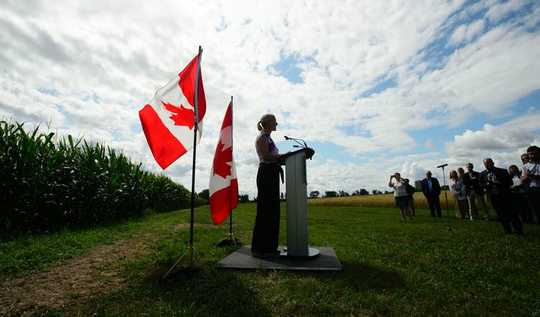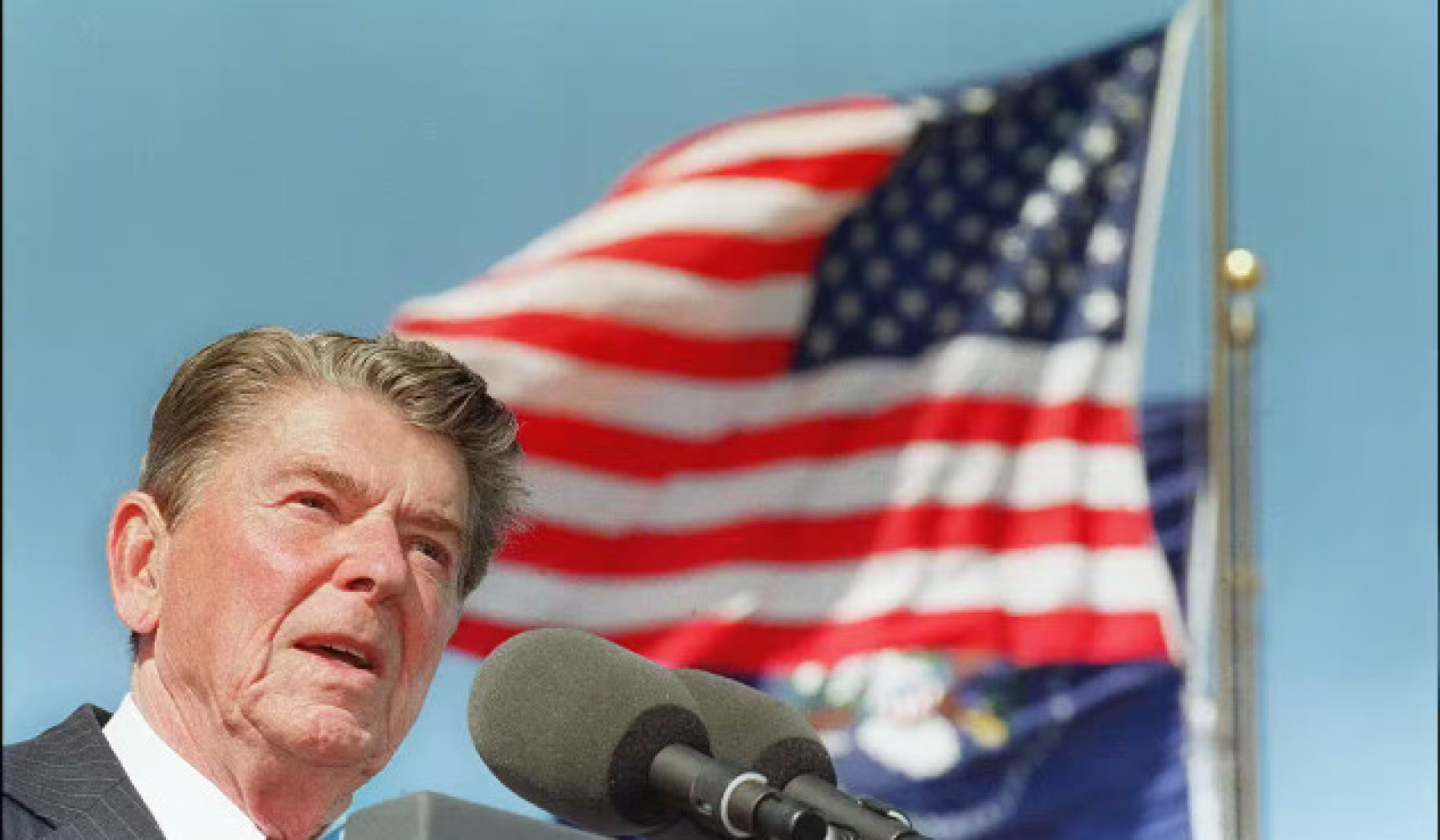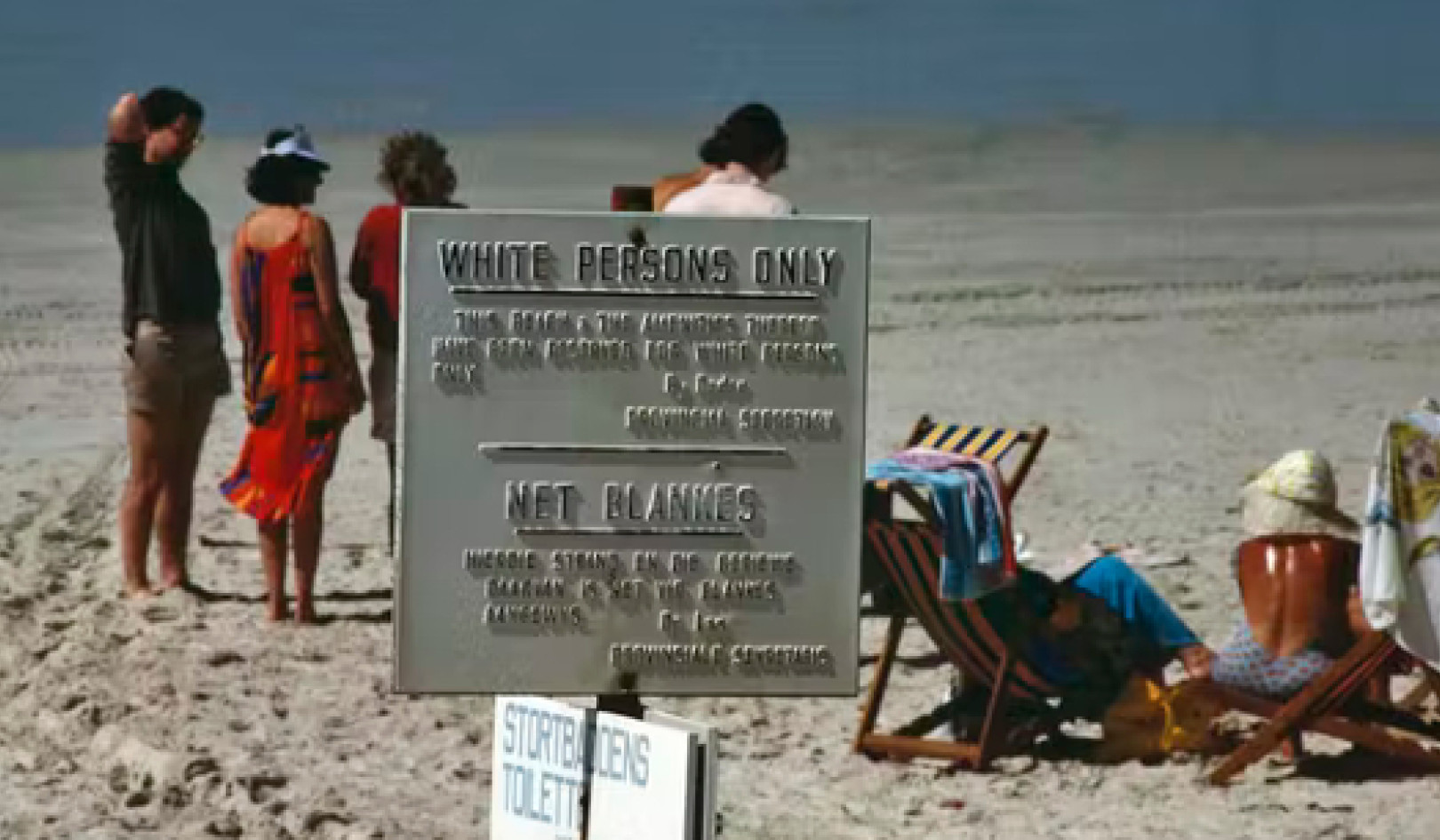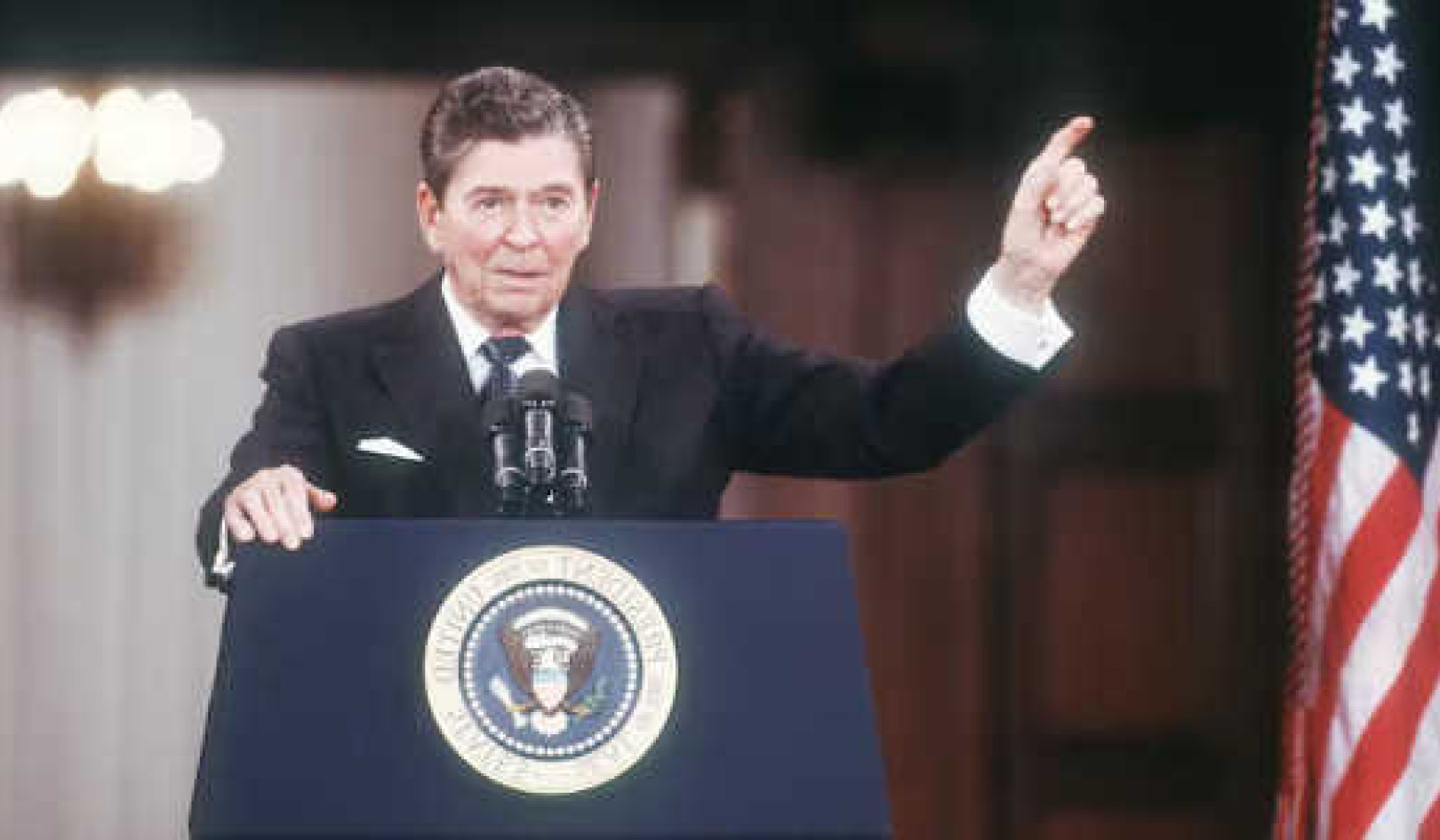 |
|
Canadian Environment Minister Catherine McKenna has had to hire security due to sexist vitriol aimed at her in public. THE CANADIAN PRESS/Sean Kilpatrick
Women leaders who support climate action are being attacked online with increasing regularity. These attacks should be viewed as a problem not only for the planet, but also to the goals of achieving gender equality and more inclusive, democratic politics.
Catherine McKenna, Canada’s environment and climate change minister, recently announced that she’s had to hire security to protect herself and her family while in public. With an election now on, it’s likely she’ll face further abuse in the weeks to come.
McKenna hired security after she was out with her children and a driver rolled down his window and shouted: “F-k you, Climate Barbie.” This sexist taunt was popularized by Conservative MP Gerry Ritz, who once used the slur in reference to McKenna on Twitter.
It resulted in a tsunami of #Climatebarbie hashtags and variations of the slur ever since. Ritz has since apologized and deleted the original tweet.
A worldwide problem
Unfortunately, vitriol directed at women leaders who support climate action is becoming more frequent in Canada and beyond.
Maxime Bernier, leader of the Peoples’ Party of Canada, recently tweeted at 16-year-old activist Greta Thunberg, calling her:
“…clearly mentally unstable. Not only autistic, but obsessive-compulsive, eating disorder, depression and lethargy, and she lives in a constant state of fear.”
Other “green” women leaders have spoken out about the sexism they have experienced, including Green Party Leader Elizabeth May, Tzeporah Berman from Stand.Earth and Catherine Abreu from the Climate Action Network.
Following the proposal of the New Green Deal by U.S. congresswoman Alexandria Ocasio-Cortez, critics attacked her intelligence and her personal and professional background. National Review writer Charles Cooke referred to her as an “unmarried, childless bartender” who “somehow has the temerity to fancy herself a congressional representative.” He claimed the New Green Deal she supports is:
“ …an untrammeled Dear Santa letter without form, purpose, borders, or basis in reality.”
When New Zealand Prime Minister Jacinda Ardern spoke about climate change, an Australian “shock jock” broadcaster said someone should “shove a sock down [her] throat.”
Nothing new
Violence and threats of violence against women leaders are certainly not new. According to research by Rutgers University professor Mona Lena Krook and University of Florida professor Juliana Restrepo San?n, women in politics experience violence, sexism and sexual harassment because of the threat they pose working in a male-dominated field.
Sexist attacks and threats of violence therefore serve to discredit women’s ideas and delegitimize their power, with the ultimate goal of excluding them from the public sphere.
Other research shows that the higher their position of power, the more threatening women become.
Although male politicians are also attacked online, recent research in the United Kingdom reveals that the effects of online attacks are particularly difficult for women politicians to deal with. That’s because women MPs are more likely to fear for their safety compared to their male colleagues.
Attacks against women climate leaders specifically can be further explained by the relationship between misogyny and climate denialism.
Misogyny at work
Unlike sexism, an ideology that promotes patriarchal social relations, misogyny is an enforcement mechanism that seeks to punish women who challenge the traditional patriarchal order, according to Cornell University professor Kate Manne.
Climate denialism has also been linked to traditional assumptions of masculinity. Research shows that climate deniers are more likely to adhere to older forms of industrial modern masculinity that helped to push society towards “industrialization, mechanism and capitalism.”
Accordingly, some climate deniers prefer this older form of masculinity over a newer “eco-modern masculinity” of care and compassion for the environment.
A 2019 study found that some men will avoid certain environmental actions, such as recycling or using reusable shopping bags, in order to maintain “an outward-facing heterosexual identity.”
These versions of heterosexual masculinity appear to be predicated upon the domination and exploitation, rather than the preservation, of the environment.
A double threat
Women leaders who promote climate policies are therefore doubly threatening to those who hold misogynistic attitudes. First, simply by being women in a powerful position and, second, by espousing policies that directly challenge traditional norms of masculinity.
“Green rage” directed at women climate leaders thus serves the function of safeguarding male dominance by punishing women who challenge the patriarchal social order. The result is a toxic brew of masculinity directed at women climate leaders by way of sexist attacks and threats of violence.
 Even Swedish climate activist Greta Thunberg, 16, has faced misogynistic online abuse, including from Canada’s Maxime Bernier. (AP Photo/Jeenah Moon)
Even Swedish climate activist Greta Thunberg, 16, has faced misogynistic online abuse, including from Canada’s Maxime Bernier. (AP Photo/Jeenah Moon)
Social media reactions to McKenna’s announcement that she now requires security for her and her family reveal how deeply embedded misogynistic attitudes are about women today.
After she tweeted about how difficult it is for women working on climate issues, some tweeters expressed support and sympathy. But many others denied that gender played a role in the attacks against her. Others continued to degrade her with sexist language, using hashtags #hypocriteBarbie and, once again, #climateBarbie.
Canadians go to the polls soon and the climate crisis is bound to be a heated campaign issue in the weeks to come.
Understanding the complex and challenging terrain women leaders must navigate is an important requirement of an informed electorate.
While some women politicians like McKenna have attempted to tackle head on the problem of online attacks against them, it should not be left to women alone to combat this issue. Dismantling patriarchal assumptions about gender is not just good for women, it is also good for men — and for the planet.
About The Authors
Tracey Raney, Associate Professor Of Politics And Public Administration, Ryerson University and Mackenzie Gregory, Master's Student, Ryerson University
This article is republished from The Conversation under a Creative Commons license. Read the original article.
Related Books
Climate Leviathan: A Political Theory of Our Planetary Future
by Joel Wainwright and Geoff Mann How climate change will affect our political theory—for better and worse. Despite the science and the summits, leading capitalist states have not achieved anything close to an adequate level of carbon mitigation. There is now simply no way to prevent the planet breaching the threshold of two degrees Celsius set by the Intergovernmental Panel on Climate Change. What are the likely political and economic outcomes of this? Where is the overheating world heading? Available On Amazon
How climate change will affect our political theory—for better and worse. Despite the science and the summits, leading capitalist states have not achieved anything close to an adequate level of carbon mitigation. There is now simply no way to prevent the planet breaching the threshold of two degrees Celsius set by the Intergovernmental Panel on Climate Change. What are the likely political and economic outcomes of this? Where is the overheating world heading? Available On Amazon
Upheaval: Turning Points for Nations in Crisis
by Jared Diamond Adding a psychological dimension to the in-depth history, geography, biology, and anthropology that mark all of Diamond's books, Upheaval reveals factors influencing how both whole nations and individual people can respond to big challenges. The result is a book epic in scope, but also his most personal book yet. Available On Amazon
Adding a psychological dimension to the in-depth history, geography, biology, and anthropology that mark all of Diamond's books, Upheaval reveals factors influencing how both whole nations and individual people can respond to big challenges. The result is a book epic in scope, but also his most personal book yet. Available On Amazon
Global Commons, Domestic Decisions: The Comparative Politics of Climate Change
by Kathryn Harrison et al Comparative case studies and analyses of the influence of domestic politics on countries' climate change policies and Kyoto ratification decisions. Climate change represents a “tragedy of the commons” on a global scale, requiring the cooperation of nations that do not necessarily put the Earth's well-being above their own national interests. And yet international efforts to address global warming have met with some success; the Kyoto Protocol, in which industrialized countries committed to reducing their collective emissions, took effect in 2005 (although without the participation of the United States). Available On Amazon
Comparative case studies and analyses of the influence of domestic politics on countries' climate change policies and Kyoto ratification decisions. Climate change represents a “tragedy of the commons” on a global scale, requiring the cooperation of nations that do not necessarily put the Earth's well-being above their own national interests. And yet international efforts to address global warming have met with some success; the Kyoto Protocol, in which industrialized countries committed to reducing their collective emissions, took effect in 2005 (although without the participation of the United States). Available On Amazon
From The Publisher:
Purchases on Amazon go to defray the cost of bringing you InnerSelf.comelf.com, MightyNatural.com, and ClimateImpactNews.com at no cost and without advertisers that track your browsing habits. Even if you click on a link but don't buy these selected products, anything else you buy in that same visit on Amazon pays us a small commission. There is no additional cost to you, so please contribute to the effort. You can also use this link to use to Amazon at any time so you can help support our efforts.
























